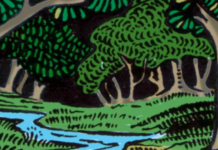 Thoth: The History of the Ancient Egyptian God of Wisdom, by Lesley Jackson
Thoth: The History of the Ancient Egyptian God of Wisdom, by Lesley Jackson
Avalonia Books, 9781905297474, 225 pp., 2012
This is a rather unique book in that it does not attempt to be anything other than an attempt to show how Egyptians through the millennia related to Thoth. It isn’t designed to detail the hymns and rituals associated with Thoth, although they do figure into the account. It isn’t about his priesthood or his temples, although they also enter into the account
There are numerous books which relate how the dynastic families of ancient Egypt related to Thoth, but very few which give any indication how commoners saw their interaction with the God of Wisdom in his various functions of scribe, messenger of the gods, protector, and psychopomp . While the average Egyptian might expect that they would never encounter the majority of their gods, Thoth was their guide in the afterlife, and everyone – no matter how high or low their status – would meet him during their transition between life and afterlife.
The ancient Egyptian concept of religion was not the same as our modern understanding. Theirs was much more fluid and intuitive. There were no hard and fast rules about which god did what. Each of Egypt’s nomes (districts) had its local deities who were sometimes combined with national gods when their attributes and functions overlapped, but there was no consistency about which gods were combined, or how the combinations would act. Such a concept may be difficult for the average 21st century individual to understand or even relate to, but it was a fact of life for the ancient Egyptians.
It should go without saying (so I will mention it, just to be sure) that the perceptions of the gods maintained by the peasantry was not the same as that maintained by the aristocracy, and that of the priesthood was, undoubtedly, very different from both of those. The peasant class saw the gods, most likely, as distant figures, for the most part, who were not particularly interested in the affairs of the common man. The aristocracy saw them, most likely, as idealized versions of themselves and their class. Tthe priesthood likely saw them as “upper management” who gave instructions to the priesthood to be carried out.
And, of course, Egypt was conquered several times during its long history, and the conquerors sometimes usurped the gods, or gave them names in their languages which were perceived as the equivalent. These also were often not a very good fit, since gods tend to be a little hard to pin down when trying to describe what they are and what they do. In addition, the Egyptians derived certain information from the names of the gods. They were not above word play, and in fact revelled in it to a large extent so that words which sounded similar, or had similar roots, could be used in place of each other. This aspect was often overlooked or ignored by those who usurped the gods for their own purposes.
This book attempts a task which goes beyond monumental all the way to colossal. It attempts to present millennia of perceptions, from multiple points of view regarding a subject which is not open to logical discussion. That it does not fully succeed is no condemnation of the author’s ability, but rather a reflection of the complexity of the subject matter. Ms. Jackson has provided an admirable foundation for further explorations, which should not be confined to Thoth, but should look at other members of the Egyptian pantheon.








